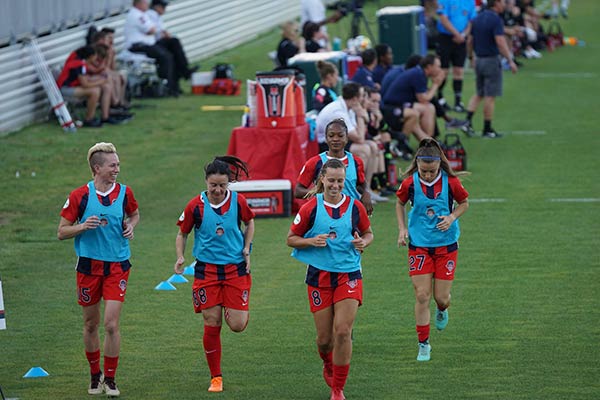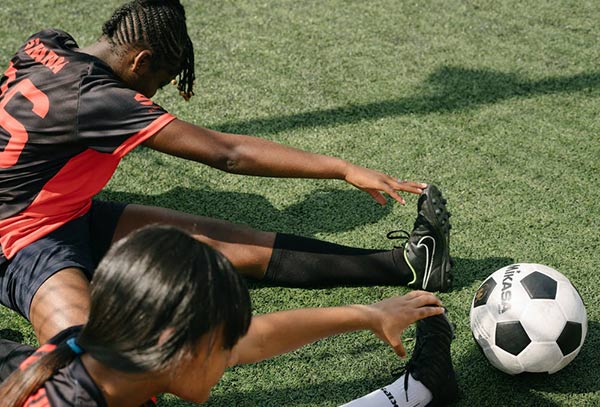How to fix Heel Pain or Severs Disease in Children
A common cause of heel pain in growing adolescents, particularly those that are actively participating in sport is a condition known as Severs disease. While the suggestion of a ‘disease’ to your child may conjure up images of a life threatening disorder crippling your child, Severs disease is not nearly so sinister and can be easily fixed.
At Sport & Spinal Physiotherapy in Gungahlin, Canberra we see many young people with this condition. I recently spoke to some local junior soccer teams about injury prevention and it was astounding how many young people had suffered from heel pain at some point. In this article I will outline this type of pain and how to fix your problem as soon as possible.
Adolescents suffering from Sever’s disease usually complain of pain at the back of their heel which is often worse after exercising. It is most common between the ages of 10-12 in boys and 8-10 in girls due to the rapid growth spurts that occur during this time. It can however happen anytime up until the age of 15. Whilst most people present with pain worse in one foot, it is very common to have symptoms in both feet.
Severs disease is often talked about as ‘growing pains’, and whilst this is true in some respects, it is not something that you need to ‘wait out’ until you stop growing. In all cases there are biomechanical factors that need to be addressed which will make your pain go away, even if you still are growing.
The reason why this condition is associated with growing is essentially due to the rapid growth in the long bones of your lower leg which your lower leg muscles – your calf and Achilles tendon can’t keep up with. This causes the muscles to pull onto the bony part where they attach at the bottom of your foot. In younger people, this bony part is a growth plate that has not fully developed yet, thus causing your pain.
Clients presenting with this condition often also exhibit biomechanical malalignment – often flat footed or knock knees. This can cause tightening of the calf muscles, along with weakness of your inner foot muscles and sometimes your gluteal muscles which control the alignment of your whole leg.
The most effective management is to get a tailored physiotherapy assessment that is specific to you.
Initially, treatment will consist of resting from activity, ice and anti-inflammatory medications to reduce the pain. Your physiotherapist may also use a variety of pain reducing techniques such as soft tissue massage or joint mobilisations. They may recommend taping to unload the area of pain, heel cups or wedge inserts into the bottom of your shoe.
Also in the initial phase we may also refer you to podiatry for orthotics and/or further footwear recommendations. It is also ideal in the first instance to start stretching your calf muscles and achilles. This initial phase typically lasts for 1-2 weeks. During this time your physiotherapist will guide you on appropriate levels of activity- they may recommend you rest from impact type activities during this phase, and will guide you on the best program to return to your sport without any further injury.
After the stretch phase, we will move you onto strengthening your leg muscles- typically this includes your calf muscles as well as the deep muscles within your foot. It may also include strengthening gluteal and thigh muscles to control the angles of force down to your foot. From there, we progress to harder strengthening exercises which may include hopping, jumping and assessing your sporting technique. This ensures a successful return to sport.
If you do everything as you should and follow our recommended program, there is no reason why this won’t be 100%, thus making it a very curable ‘disease’.
If you child complains of heel pain, or someone you know is suffering from heel pain or something similar, it is better to do something about it sooner rather than later. Call Sport & Spinal Physiotherapy today on 6262 4464 and we can sort out this injury fast!

